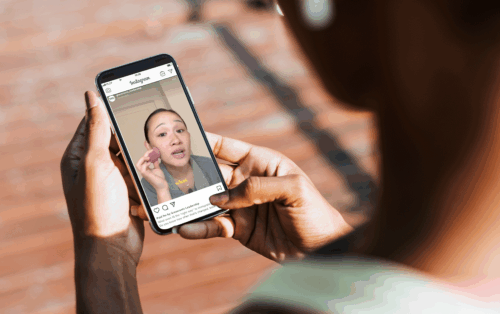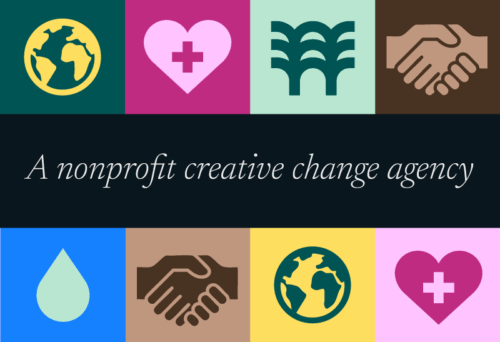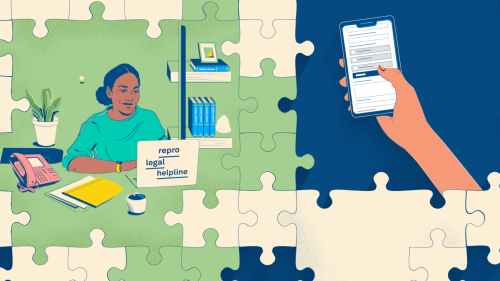
Across the United States, people are talking about abortion rights as the Senate holds confirmation hearings for Trump’s latest Supreme Court nominee, Amy Coney Barrett. Barrett is a member of “People of Praise,” an extremist religious group that advocates a “male-dominated hierarchy and view of gender roles.” Barrett has repeatedly criticized abortion in her past writings and statements. Barrett has asserted her belief that “life begins at fertilization” as well as her view that the 1973 Roe v. Wade decision is “barbaric.”
Amy Coney Barrett is clearly opposed to abortion, on a personal and religious level. As the majority of Americans support Roe v. Wade, people are worried that her taking the ninth seat as a Supreme Court justice will strip hundreds of millions of Americans of access to reproductive justice. Analyses show that if Roe v. Wade is overturned, “legal abortion… would effectively end for those living in much of the American South and Midwest, especially those who are poor.”
What is reproductive justice? It is an intersectional and complex concept that means something different to different kinds of people.
One of Resource Media’s clients is If/When/How: Lawyering for Reproductive Justice, a nonprofit organization made up of advocates, organizers, and lawyers. To them, reproductive justice is a vision of a future where everyone is free to make their own decisions about their bodies and reproductive lives. If/When/How works to change laws and policies that keep people from accessing abortion care that they want and need, with a focus on protecting and lifting up the rights and dignity of the people who are most impacted.
Over the last several months, we have worked with If/When/How to empower people to safely self-manage abortion, or end pregnancy on their own, at home. Many people self-manage abortions with the medications mifepristone and misoprostol, which are safe and effective in ending pregnancy more than 95 percent of the time. Together, we developed a marketing campaign for the Repro Legal Helpline, a free, confidential resource staffed by If/When/How lawyers who interpret and explain the law regarding self-managed abortion.
Our creative advertisements, like this 30-second animated video, will help reach thousands of people, who are looking for a lifeline for connection, advice and understanding, to provide them with the legal counsel they need. We’re using digital marketing strategies that prioritize confidentiality, and producing a multicultural campaign with content adapted into Spanish and Mandarin Chinese as well.
While self-managed abortions are safe and effective healthcare, the laws around them are complicated and vary based on where someone lives and what their situation is. In some cases, politically motivated police and prosecutors may target people for self-managing an abortion or for helping someone else do so. The Repro Legal Helpline can provide legal support and assist people in learning their rights regarding self-managed abortion.
If Roe v. Wade is overturned, the practice of self-managed abortion is likely to increase.
While many people may be unfamiliar with it, self-managed abortion is already commonplace. Some people prefer the privacy, comfort, cost, access, and convenience of self-managed abortion to visiting a clinic or doctor in person — especially during COVID-19. Others feel that self-managing abortion privately is more in line with of their cultural and religious beliefs. Additionally, many people prefer to get support from their partners, families, friends, and healers during the process of self-managed abortion.
From a reproductive justice standpoint, access to self-managed abortion urgently needs to be protected.

Here are some more thoughts about what reproductive justice means to us, in our own words:
“For me, reproductive justice is about acknowledging that abortion is not just a single, simple decision whether to have a baby or not. Numerous considerations are intertwined with other parts of people’s lives and with their families and communities. Money is a huge factor because good jobs are scarce and government ‘social safety net’ programs even scarcer. The climate crisis, environmental racism, and health inequities are also factors! So many Americans don’t even have health insurance, let alone quality health care; nor do we have consistent access to COVID-19 testing, treatment, or vaccines. The severe lack of good housing, education, and childcare in the U.S. — and gendered power and pay inequities — are also part of the equation.
I am currently pregnant, so I am thinking a lot about reproductive justice and birth justice. To me, the idea of forcing women to have babies, healthy or not, is truly barbaric. In our deeply unjust and unequal social reality where women of color, young people, immigrants, queer, trans, and gender nonconforming people, and so many others are marginalized, abortion and birth control are essential for everyone. I will not accept a future that oppresses my future daughter, me, and other women for making our own decisions about bringing life into the world.”
— Rachele Huennekens
“To me, reproductive justice means having the rights and freedom to be able to control if you’ll have children, when you’ll have children and how you’ll have children. And, ultimately this is a private decision that takes place between you, your partner and your doctor. We know that when people have the power to be able to control these basic and hugely consequential factors in their lives, that their families and whole communities benefit. I fear that if this power to control one’s own fate is taken away from those who live in certain states, that we’ll see a cascading after-effect, including less access to education and living wage jobs, more mental health crises and abuse, and worse health outcomes for both children and parents.
I have two children and I am extremely fortunate that I had them at the time that was right for me. The infrastructure put in place to allow me to do that included sex education, birth control and regular access to reproductive healthcare. I hope that this project helps give people the tools they need to fight for their rights so that they can access the reproductive health infrastructure that is fighting for survival right now.”
— Sian Wu
“Reproductive justice at its heart is about self-determination and being free to ably control your own journey in life. I can think of nothing more fundamental, for those of us with uteruses, than being able to decide you’re ready–or not ready–to parent and raise children. That choice has to be yours alone.”
— Marla Wilson
“For me, cultivating safe, open and confidential discussions with your doctor is the cornerstone of healthcare. It ensures that you are receiving and making the most informed decisions regarding your body, health and future. Conversations with a doctor about your reproductive options, must be safe, accurate and without judgment for everyone — that’s what reproductive justice means to me.”
— Marcela Gara Garcia-Huidobro
“My daughter is the light of my life, and she joined our family when the time was right, because we had access to birth control and great medical care. That’s one form of reproductive justice. The abortion I had as a young woman was a different kind of blessing, because I knew I couldn’t parent at that time, and I had access to a safe, legal abortion that didn’t endanger my health, my freedom, or my partner’s legal status. That’s another side of reproductive justice. They are intertwined, they are fundamental, they are at the root of an equitable society.”
— Belinda Griswold
If you or someone you know are in need of information and support on self-managed abortion, please visit the Repro Legal Helpline website at www.ReproLegalHelpline.org or by calling the secure line at 844.868.2812.
To learn more about our work with If/When/How: Lawyering for Reproductive Justice, check out our journey map depicting our approach and process: From Narrative to Visual Marketing: Our Creative Process.
If you’re concerned about Amy Coney Barrett’s nomination and threats to abortion rights, please help us spread the word about self-managed abortion and the Repro Legal Helpline by sharing messaging from this Toolkit.
And consider donating to reproductive justice organizations like If/When/How, the National Network Abortion Funds, and Plan C.
More Insights and Resources


Rooted in who we are: Check out our new look and website

